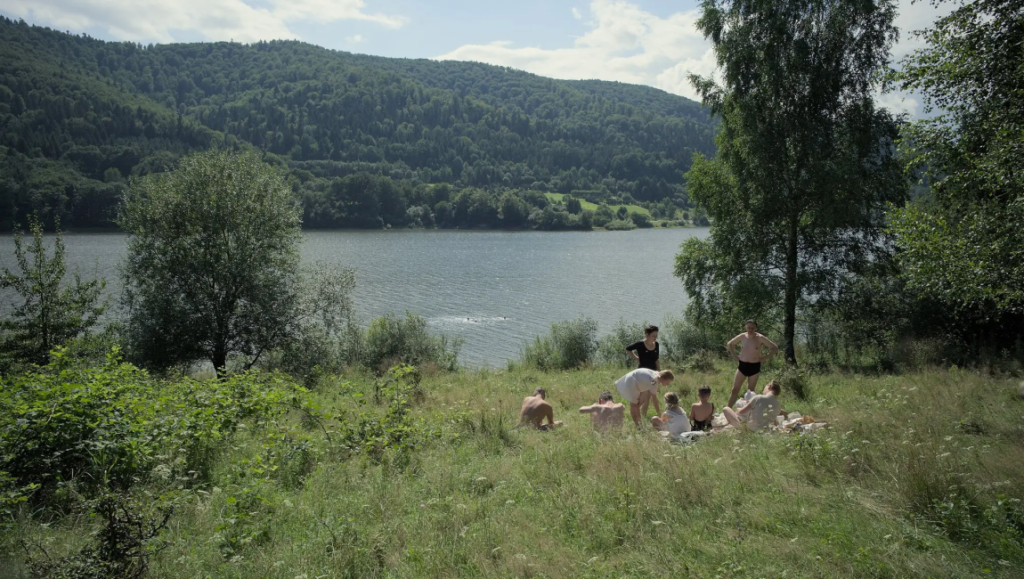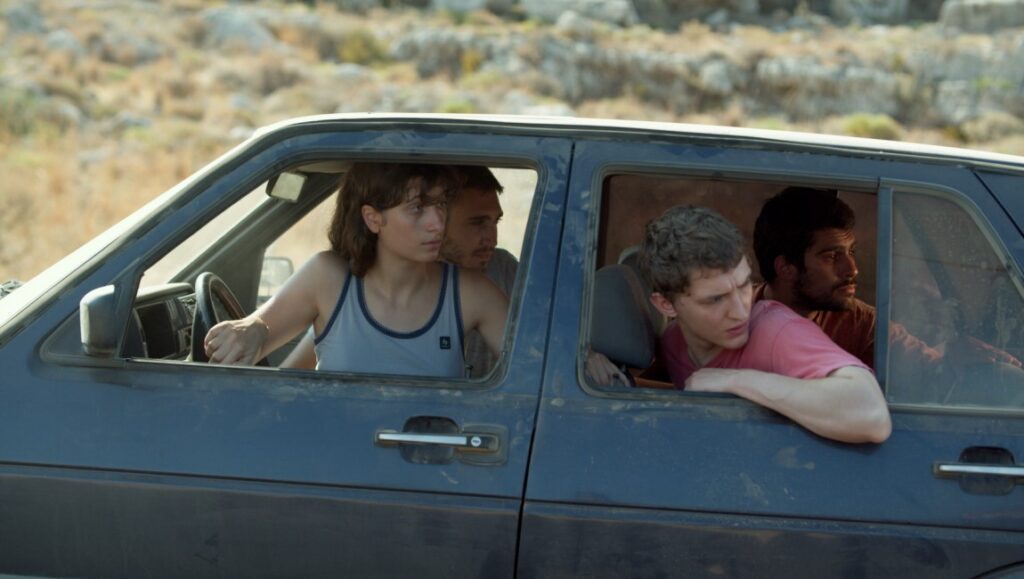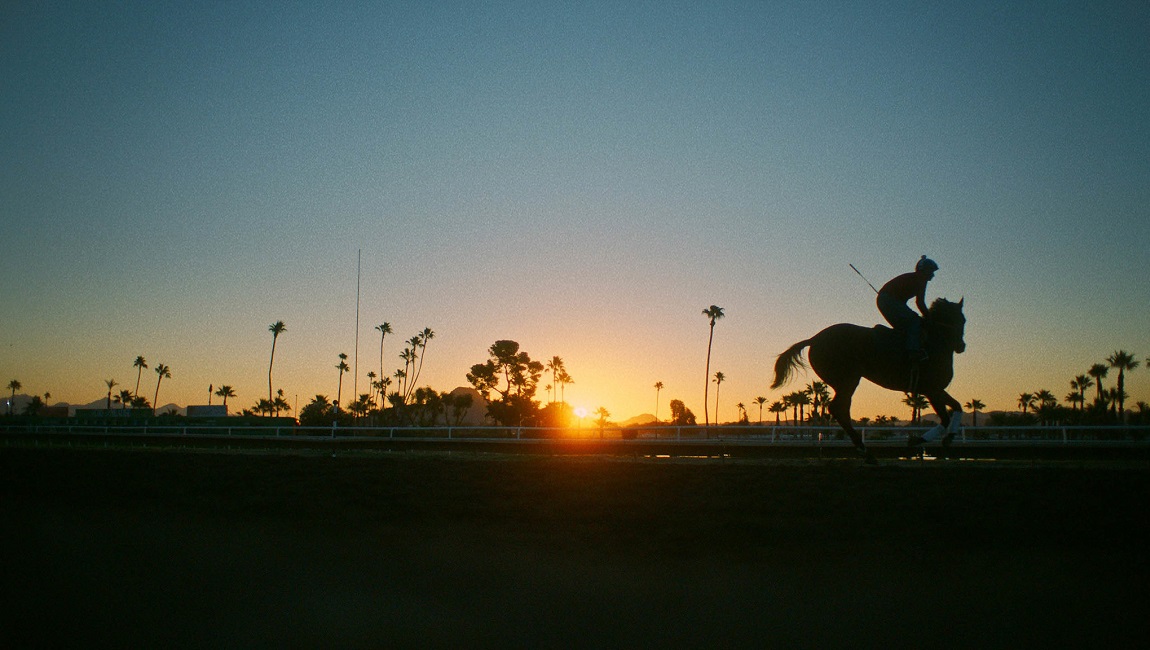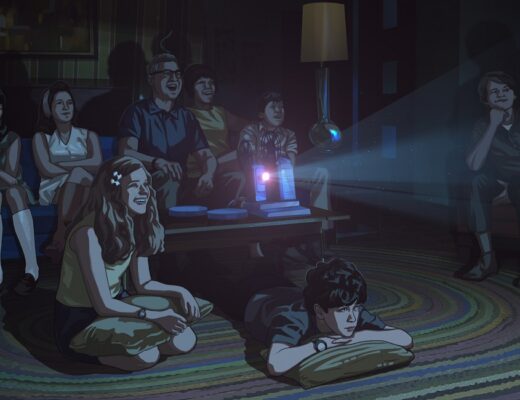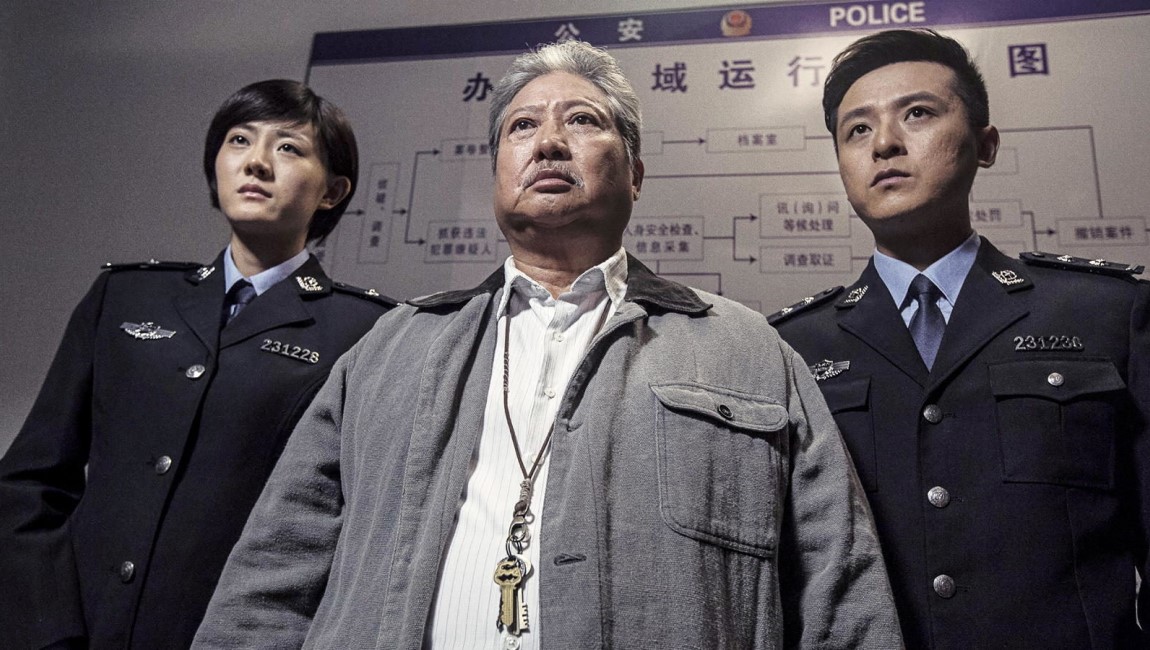Whew! It’s only September, but here at InRO it does feel like we’ve lived through at least two of ’em, having successfully trawled through Cannes, Tribeca, FIDMarseille, Locarno, Fantasia Fest, Japan Cuts, and a bit of Venice in the last 3 months alone. The good news is that Toronto, ever the leading international fall fest in terms of straddling awards buzz and new discoveries, also gives us — paradoxically — some breathing room to consolidate the year’s notable premieres, at least before New York offers a second round of cinephilic eclecticism. Many of the titles we didn’t manage to screen at Cannes and Venice are now headed our way, not least a return to form for several of the masters, a selection of assured and accomplished newcomers, and a good number of timely and relevant docs (another defining trait of TIFF’s). But for now, as you read this, we’re probably catching a much-needed breather (Or are we? Do we ever?) from the many surprise wins at Venice — including Lanthimos going mainstream, Bonello getting absolutely snubbed (more on that soon!) — and so we’ll leave you with a teaser of what’s to come with films we’ve already covered. Refresh your memories, re-whet your appetites: we’ve got several raves (especially for Angela Schanelec’s Music), and we’ve got several hot takes too (notably, one for Hirokazu Kore-eda’s Monster). If you thought InRO was going to hand you the Rotten Tomatoes aggregate on a platter, you’ll be in for something quite different come this time next week.
The Zone of Interest
The issue at the heart of Jonathan Glazer’s The Zone of Interest is one of the oldest in the cinema: how does one represent the unrepresentable? Loosely adapted from Martin Amis’ novel of the same name, and set in 1942, the film is centered around the Höss household: a German family who live in a large, two-story house with tasteful, minimal decor, complete with a swimming pool, a greenhouse, and a flourishing garden. The house also happens to be located directly across from the Auschwitz death camp. The film’s conceptual hook, if it can be called that, is that the horrors of the Holocaust will be deliberately kept off-screen and only indirectly represented — no violence will be visually depicted within the frame… [Previously Published Full Review.] — LAWRENCE GARCIA
The Human Surge 3
Though comfortably placed in the more adventurous screening programs at film festivals, Eduardo Williams’ work has also managed to stand proudly independent of the dominant trends in arthouse film culture. These films are ethnographic studies without being rigorously academic, slow without making “slowness” a core part of the work, and mostly joyous studies of people at the global margins. In this writer’s experience, Williams’ shorts have always stood out compared to his peers, prompting a small, cult-like festival-going contingent who eagerly anticipated the director’s first feature, The Human Surge in 2016. His previous Could See a Puma (2011) and I Forgot! (2014) seemed like formal experiments that, while stunning, could not sustain a feature-length runtime, but The Human Surge cleverly composited several Williams projects into a poetic meditation on how we connect to one another on a global stage… [Previously Published Full Review.] — ZACH LEWIS
Last Summer
As Catherine Breillat’s first film in a decade, Last Summer scans initially as an altogether more mannered affair for the director. Known for her sexually frank inquiries into desire, taboo, and transgression, Breillat’s latest drops us into the upper-crust world of Parisian couple Anne (Léa Drucker) and Pierre (Olivier Rabourdin), as well as their two young daughters. Anne is a respected lawyer who works with abused children, and, by her own admission, her sister is her only friend. These details establish a few things. In her professional capacity, Anne is a champion of the young, and we witness her refusal to take chances with the safety of the children; she is also decidedly “domestic,” and though we’re not yet privy to an interiority that might suggest if she feels strongly any which way about it, what is clear is that her life is guided by a certain work-and-home structure… [Previously Published Full Review.] — LUKE GORHAM
Do Not Expect Too Much From the End of the World
To the uninitiated, written descriptions of Radu Jude’s cinema might give the wrong impression of his films as dizzyingly dialectical exercises requiring a complete working knowledge of the last century of Romanian politics, 20th-century philosophers and artists, and, perhaps, a good deal of patience. While it’s true that Jude’s films are dense with information, obsessed with the impact of shoddy historical memory on the present, and sometimes use a collage of images pulled from different sources in place of conventional narrative, they are also fun, filled with filthy humor, and, at their discursive best, invigorating. And though familiarity with Jude’s cultural and historical touchstones would be a bonus, the films contextualize and extrapolate the referenced ideas enough to be accessible to anyone with an interest… [Previously Published Full Review.] — CHRIS MELLO
Music
Read a review of any of Angela Schanelec’s feature films and you’re bound to encounter adjectives like “elliptical,” “confounding,” and “obscure.” It’s true — the German filmmaker has a peculiar approach to storytelling, favoring all manner of narrative obfuscation while honing in on movements, gestures, and that most basic building block of cinema: the image itself. Echoes of Bresson permeate her filmography, so too the works of Straub-Huillet, perhaps the key filmmakers of the second half of the 20th century (apologies to Godard). In any case, Schanelec has positioned herself as part of a specific lineage in Modernist European filmmaking… [Previously Published Full Review.] — DANIEL GORMAN
Orlando, My Political Biography
Berlinale’s Encounters section has largely been a platform for lesser known filmmakers since its inception, though it’s also seen its fair share of high profile directors, including Bertrand Bonello, Cristi Puiu, and Hong Sang-soo. This year Hong is joined by Paul B. Preciado, a prominent writer, philosopher, and curator directing his first film. Orlando, My Political Biography begins with Preciado narrating its impetus: having been asked why he hasn’t written a biography, Preciado notes that such a thing already exists in Virginia Woolf’s Orlando. While such an assertion is obviously not literal, Preciado’s film takes it as such, applying the novel to (or perhaps applying to the novel) not only his own biography, but a wide set of specific and broad trans experiences… [Previously Published Full Review.] — JESSE CATHERINE WEBBER
Youth (Spring)
Youth (Spring) arrives in the midst of something of an inflection point: The West’s orientation toward China has shifted radically since Chinese documentary filmmaker Wang Bing’s last run of films, in the mid-2010s, and in light of that, the work will be received differently. Even more broadly, documentary cinema is in something of a state of crisis at the moment; it’s undoubtedly enjoying an elevated status, but also being swallowed into the gaping chasm of “content,” at one extreme, while at the other end of the commercial spectrum, many prominent filmmakers have been noticeably struggling to reconcile the contradictions at the heart of the medium in fresh and compelling ways… [Previously Published Full Review.] — NOEL OAKSHOT
Inside the Yellow Cocoon
Newly christened Director’s Fortnight General Delegate Julien Rejl has expressed a desire to highlight new voices with his first programmed slate — not just by selecting filmmakers who are early in their careers, but also films still lacking sales representation. And it’s a gesture toward the success of this strategy that the 2023 Camera d’Or — awarded to the best first film premiering at Cannes overall — went to a work from this section: Pham Thien An’s Inside the Yellow Cocoon Shell… [Previously Published Full Review.] — JESSE CATHERINE WEBBER
Here
The familiar quietude of vacant alleys, secret crooks, and empty restaurants; those shared moments of unspoken reminiscence and silenced discovery. With Here, Bas Devos trains his patient gaze on the ambiguity of attraction, whether for another person or for the microscopic environments flourishing under the scrutiny of moss. The knack for affect that Devos has been able to cultivate through his works is most generously arranged with this outing, though this generosity feels both familiar and telegraphed via the very aesthetic interests that are commonplace within the sphere of festival acclaim… [Previously Published Full Review.] — ZACHARY GOLDKIND
Monster
With his latest film Monster, Hirokazu Kore-eda has outdone himself. Rather than make one bad film, as he usually does, the Japanese director has made the equivalent of three, each one worse and more wrongheaded than the last. The first of the film’s three parts opens promisingly enough, centered on a single mother, Saori (Ando Sakura), who finds out that her son, Minato (Kurokawa Soya), is apparently being verbally and physically abused by his schoolteacher, Mr. Hori (Nagayama Eita). Short scenes advance the narrative at a brisk clip, following Saori’s attempts to seek restitution from the school, while deliberately obscuring the motivations of every other character… [Previously Published Full Review.] — LAWRENCE GARCIA
The Delinquents
Blanket declarations about three-hour-plus runtimes always seem curious when filmmakers employ said length for wildly different purposes. Though the sweeping epic may be the most classic Hollywood implementation, the space can be used to house labyrinthine plots, emphasize repetition, or facilitate other experimental practices. In Rodrigo Moreno’s new film, The Delinquents, the director uses the space to play. Throughout its runtime, the film shifts in form and genre, often feeling like an entirely different work than it was a mere half hour ago. These shifts, though, are not tectonic, and furthermore the film is united even in its disparity by the pleasure of discovery, as new facets of its characters and the world they inhabit are revealed… [Previously Published Full Review.] — JESSE CATHERINE WEBBER
Kidnapped
Many critics’ wrap-ups from Cannes this year included dismissive language directed at Ken Loach’s new film competition film, The Old Oak. As is often the case with late Loach, the consensus has been that the director’s heart (and politics) may be in the right place, but that he sacrifices nuance in the name of agit-prop. Well, the same can be said for Marco Bellocchio — at least as far as his own new competition film is concerned. Kidnapped is a florid docudrama based on the case of Edgardo Mortara (Enea Sala), a six-year-old boy from a Jewish family in Bologna… [Previously Published Full Review.] — MICHAEL SICINSKI
Humanist Vampire Seeking Consenting Suicidal Person
Sadly, the title of Ariane Louis-Seize’s debut feature tells you virtually everything you need to know about the film itself. The Quebecois horror-comedy Humanist Vampire Seeking Consenting Suicidal Person quickly establishes a premise and, apart from some notable subtleties of character, follows through on said premise in exactly the manner you’d expect. Coming as it does on the heels of about a decade of existential bloodsucker pictures, all dedicated in their various ways to convincing us that “vamps are people too,” Humanist Vampire brings very little new to the table… [Previously Published Full Review.] — MICHAEL SICINSKI


